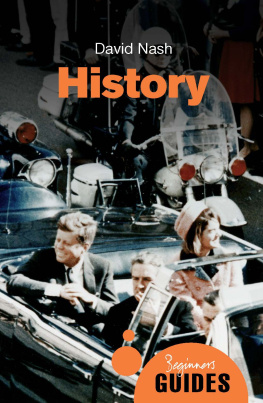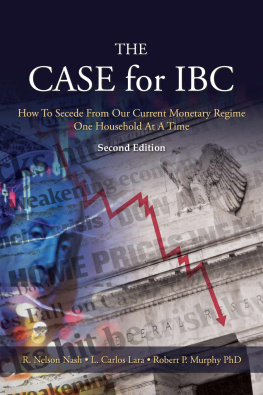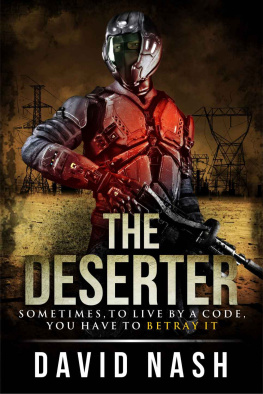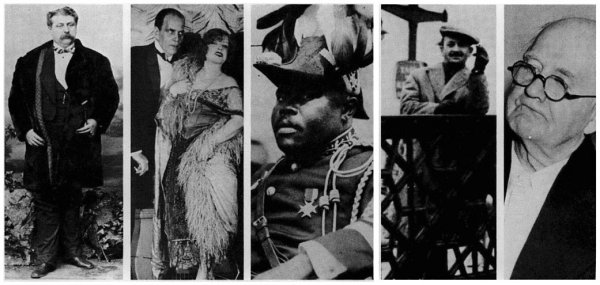Hustlers & Con Men
M. Evans and Company titles are distributed in the United States by the J. B. Lippincott Company, East Washington Square, Philadelphia, Pa. 19105; and in Canada by McClelland & Stewart Ltd., 25 Hollinger Road, Toronto M4B 3G2, Ontario
LIBRARY OF CONGRESS CATALOGING IN PUBLICATION DATA
Nash, Jay Robert.
Hustlers and con men.
Bibliography: p.
Includes index.
1. Fraud-United States-History. I. Title.
HV6695.N37 364.1630973 75-38602
ISBN 0-87131-188-7
Copyright 1976 by Jay Robert Nash
All rights reserved under International and Pan-American Copyright Conventions
Design by Joel Schick
Manufactured in the United States of America
9 8 7 6 5 4 3 2 1
This book is for my brothers Neil and Jack
Acknowledgments
I would like to thank James Patrick Agnew, my friend and co-researcher, who toiled in scores of libraries and archives on this books behalf. My boundless gratitude goes to an extraordinary typist, Carolyn Zozak; to Jan, for proofing the madcap prose; to the staff of the Chicago Public Library, especially Joseph Lutz in the history and travel department and Jimmy Downs; to Peter Weil of the Newberry Library; to Robert C. Miller, assistant director for general services at the Joseph Regenstein Library at the University of Chicago; to the staff at Northwestern University Library; to once-upon-a-time con men Joseph Yellow Kid Weil, John OHara, Jack Goose and others.
And to those who contributed so many rich anecdotes and verifiable storiespostal and police officials who prefer to remain anonymous; James Elkins; John Agnew, Sr.; John Agnew, Jr.; Patrick Agnew; Bob Connelly, who cherishes Wilson Mizners zany exploits; Ed Crawford; Tom Buckley; Marc Davis, formerly of the Chicago Tribune, who remembered so well the story of Sigmund Engel; Jerrie Lynn Klein; Art Kluge; Jim Small; Curt Johnson; Norbert Blei; Hank Oettinger; Edgar Krebs, my journalistic savant in California; Jerry Goldberg; Mary and Tom McComas; and my cooperative newspaper friends Herman Kogan, Tom Fitzpatrick, Roger Ebert, Paul McGrath, Bill Granger, Paul Galloway of the Chicago Sun-Times, Mike Royko, Henry Kisor, Larry Finley, Robert Herguth and Barry Felcher of the Chicago Daily News, Mike Lavelle of the Chicago Tribune, and Joseph Longmeyer of the Chicago Defender.
Hustlers & Con Men
One
The First Hustle
THE COMING of the con man to America was as natural as the peeling back of one frontier after another. He was a woodsman, a peddler, a traveler quite ordinary. He struggled to California in the Gold Rush, plying his devious games in the mud-spattered shanty-built boom towns. His subtle grift could be found, long before the Civil War, in the thick-carpeted salons of the paddle-wheelers slurping and sloshing their Mississippi ways from Illinois to New Orleans. He rode the first rails West in comfort, fleecing his fellow passengers with a smile.
In the cobblestoned East he was a hawker, a mobile seller of wares and nostrums, a drifter of easy manner and average garb, appearing at town meetings and country fairs. He also moved, formally attired and scented, through stylish High Society, bilking, through the embryonic American business world. But for the most part he was a ubiquitous, nameless individual, employing against the naive such simple cons as three-card monte, banco, chuck-a-luck, green goods, the gold brick, the country send, the Spanish prisoner. Sometimes he was a man of repute who risked reputation and identity in big cons (later to be termed the big store), protected only by audacity and will.
Precedent for the games of these wily wags had long been set by spectacular European harbingers. Con man and credit trimmer Richard Town had so incurred the wrath of his high-placed victims that in London, on May 23, 1712, he was hanged for secreting fifteen tons of tallow on board a ship and attempting to flee with his money, thus defrauding creditors. Towns open-air execution before a cheering multitude was highlighted by the fact that the day was his birthday. This suave con man stood coolly on the scaffold and shouted in a stentorian voice: My friends, this is my birthday. I see you have come to help me honor it. To an attractive lady nearby he remarked: Madam, my compliments, and thank you for coming to my adventure. True to the unruffled demeanor that was to hallmark those of his miscreant trade, Town then adjusted the cap over his head and cavalierly signaled the drop to fall.
John Laws Fantastic Bubble
After Towns fabulous demise, Europe became pockmarked by a plague of celebrated con artists. Hot on Towns heels was Edinburgh-born John Law, ugly, ill-tempered, trained in finance by a banker father, a born confidence man whose wild schemes would bring about the economic ruination of France. Branded a murderer and fugitive, Law fled England after killing a man named Beau Wilson in a one-sided duel over the dubious affections of one Elizabeth Villiers (later Countess of Orkney). Obtaining a directorship in the Bank of Amsterdam, Law befriended the Duke of Orleans, who was to become regent for Frances Louis XV. Through the Duke, Law was appointed head of the Banque General and later Controller-Gnral of Frances money.
The country was then hopelessly in debt, $625 million owed for the extravagant wars and whims of the hedonistic Louis XIV, and Laws plan to solve the financial dilemma was to float paper currencygovernment secured bank notesand create a national elastic monetary system. Coinage was called in and restamped with half its weight in metal without losing its former face value. To this scheme Law added, in 1717, a government-backed con history would call the Mississippi Bubble. Law developed the Mississippi Company, the purported intention of which was to develop the vast trading riches of French Louisiana, but his real aim was to exploit the companys stock, and this he did on a level so broad that the entire country was seized by a frenzy of speculation. Blessed by the Duke, the government, and the decaying royalty, Law opened lavish offices at the Hotel de Soissons and initiated his financial rape.
By 1720 Paris was a madhouse, jammed, it seemed, by every citizen in France attempting to buy Mississippi Company stock. Formerly poor people retired wealthy in months, purchasing Laws phony stock and reselling it to the desperate at 120 percent profit, just as Law, on a grander scale, was doing. (American confidence man William F. Miller would, in 1899, offer a 520 percent short-term increase on money invested in his bogus Franklin Syndicate; Charles Ponzi of Boston would also follow Laws Peter-to-Paul game, with variations, in 1919). Not a ship departed for Louisiana to develop its much-touted wealth of trade, yet tens of thousands kept purchasing empty stock certificates, the soaring rate of which was impossible to comprehend. In the summer of 1720 a 500-livre share vaulted to a value of 18,000 livres.
The boom made everyone artificially rich. Living space was at such a premium that houses renting for $200 a year rocketed to $4,000 a month. A cobbler retired after renting his narrow stall to brokers for 200 livres ($40) a day. And apocryphal or not, one report had it that a hunchback made a small fortune by standing still at various points in the almost inconceivable crush and allowing the use of his deformed back as a desk for a reasonable fee.
Unprepared and overextended the nation was stunned at the expos revealing Laws stocks to be useless; there simply was no Mississippi Company. John Law, dressed as a beggar, escaped to the border and disappeared. His departure at the threat of public lynching was so hasty that he thoughtlessly left behind sacks of accumulated gold and jewels, an enormous fortune, and vanished as penniless as he had made France.








